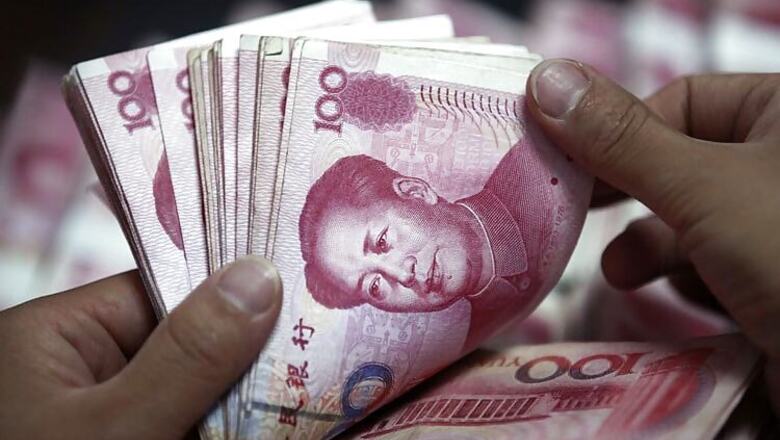
views
SHANGHAI : Chinese shares fell for a fourth consecutive day on Wednesday, but the declines were modest as Beijing's efforts to prop up values appeared to have brought a measure of stability to its unruly stock market.
After a dramatic plunge of more than 8 percent in Chinese stocks on Monday, China's securities regulator pledged to buy shares to calm the market and the central bank
hinted at more policy easing to boost liquidity.
The Shanghai Composite Index eased 0.2 percent in subdued trading on Wednesday morning and the CSI300 index of the largest listed companies in Shanghai and Shenzhen dipped 0.4 percent.
This week's market turbulence shattered three weeks of relative calm for Chinese equities, secured through heavy government intervention to arrest a precipitous sell-off in late June and early July that had wiped as much as $4 trillion off share values.
The latest volatility has raised questions about how Beijing can extricate itself from the raft of support measures it has placed under the stock market. Some foreign investors say the heavy-handed state intervention has also set back the market liberalisation plans at the centre of China's economic reform agenda.
"Some of the things they've done have been, to a degree, irrational," said Sat Duhra, fund manager at Henderson Global Investors.
"It's very important that if China does want to be seen as a credible destination for foreign capital, then some of these things have to be more measured and thought out."
Despite a slowing economy and weakening corporate earnings, China's main stock indexes had more than doubled over the year to mid-June, before the sudden swoon that saw them tumble more than 30 percent.
Beijing's response included an interest rate cut, the suspension of initial public offerings, relaxed margin lending and collateral rules and enlisting brokerages to
buy stocks, backed by cash from the central bank.
Monday's rapid sell-off, which saw China's major indexes suffer their biggest one-day loss in more than eight years, may have been partly due to authorities testing the water for withdrawing some of that emergency support.
Three people in the banking industry with direct knowledge told Reuters that the state-run margin lender had returned ahead of schedule some of the funds it borrowed from commercial banks to stabilise the stock market.




















Comments
0 comment